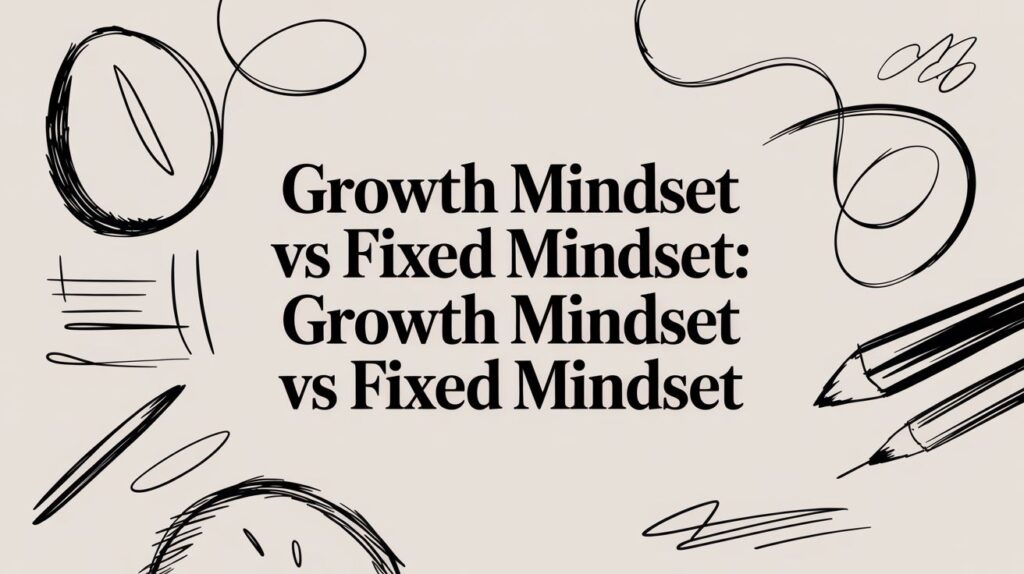Action is reaction: Just Do it!

Ever thought about how much of our lives are just reacting to stuff rather than taking charge? It’s like being on autopilot, letting things happen to us instead of making them happen. This article dives into the whole idea of ‘Action is reaction: Just Do it!’ and how taking action can totally change the game. Whether it’s in our daily grind, at work, or when life throws us curveballs, choosing action can lead to better outcomes. Let’s see how we can switch gears from just reacting to actually doing something about it.
Key Takeaways
- Action and reaction are closely linked, often making it hard to tell them apart.
- Taking action gives you control, while reacting often hands control over to someone or something else.
- In daily life, consciously choosing to act can lead to more positive and effective outcomes.
- Building success often involves taking action and collaborating with others.
- Choosing action over reaction can help manage emotions and improve decision-making.
Understanding the Dynamics of Action and Reaction
The Thin Line Between Action and Reaction
There’s a fine line separating action from reaction. Action is a deliberate choice, a decision to do something with intent. On the other hand, reaction is often an immediate, emotional response to an external event. This distinction is crucial because it determines whether we maintain control over our lives or hand it over to external forces. In a way, every action we take is a response to some stimulus, but it’s the conscious decision-making that sets action apart from mere reaction.
Empowering Action Over Reaction
Empowering action over reaction means choosing to act with intention rather than simply responding to external events. When we act, we take the reins of our lives, making decisions that align with our goals and values. In contrast, reacting often means surrendering control, allowing external circumstances to dictate our behavior. By focusing on action, we can create a life that reflects our true desires and potential.
Stimulus: The Catalyst for Action and Reaction
Every action or reaction begins with a stimulus. This stimulus can be anything from a sudden loud noise to a challenging situation at work. How we choose to respond to these stimuli can define our path. Stimuli act as catalysts, sparking either a conscious action or an instinctual reaction. Understanding this can help us pause and choose our responses more wisely, leading to more productive and positive outcomes.
In every moment, we have the power to choose our response. By understanding the dynamics of action and reaction, we can transform our lives, making conscious choices that align with our deepest values.
The Circle of Action and Reaction in Daily Life
Real-Life Applications of Action and Reaction
Every day, we find ourselves in situations where we must choose between action and reaction. Imagine you’re at a coffee shop, and the barista gets your order wrong. Your first instinct might be to react with frustration. But what if you chose to act instead? Politely pointing out the mistake can lead to a quick resolution, maintaining a pleasant atmosphere for everyone involved. Here are some common scenarios:
- Workplace Conflicts: Instead of reacting defensively to criticism, take a moment to understand the feedback and use it to improve.
- Traffic Jams: Rather than succumbing to road rage, use the time to listen to an audiobook or podcast.
- Social Media: When confronted with a negative comment, consider responding with kindness or simply ignoring it.
Breaking the Habit of Reactionary Behavior
Reaction is often our default mode. It’s quick, emotional, and doesn’t require much thought. However, breaking free from this pattern can lead to more positive outcomes. Start by recognizing triggers that lead to impulsive reactions. Practice mindfulness techniques to pause and reflect before responding. Over time, this conscious effort can transform reactions into thoughtful actions.
The Power of Conscious Action
Conscious action is about taking deliberate steps to influence outcomes positively. It’s about choosing how you respond to life’s challenges, rather than letting them dictate your mood or behavior. This approach not only empowers you but also sets a positive example for others. By acting with intention, you can create a ripple effect that inspires those around you to do the same.
In the dance of life, action is the lead, and reaction follows. When we choose to act, we reclaim our power and shape our destiny. Embrace the circle of action, and you’ll find yourself navigating life’s challenges with grace and confidence.
The Cycle of Action: Building Success Through Collaboration

Action as a Foundation for Team Success
In a world where teamwork often determines the outcome of projects, understanding the cycle of action is crucial. Imagine a rock band where each musician brings their unique sound, but together they create a symphony. That’s how action works within a team. When one person takes initiative, it inspires others to add their contributions, building momentum. The key is to focus on actions that encourage further actions, not reactions. This cycle can lead to innovative solutions and successful outcomes.
Creating Symbiotic Relationships Through Action
When individuals in a group act, they don’t just contribute—they enhance the group’s dynamic. This is where symbiotic relationships come into play. Each action taken by a team member should ideally support and amplify the actions of others. Think of it as a dance, where each step is in tune with the next. This harmony is what creates strong, effective teams. To foster this environment, encourage open communication and shared goals.
The Role of Action in Creative Endeavors
Creativity thrives in environments where action is encouraged over reaction. In creative projects, such as writing or art, initial actions often set the tone for the entire project. It’s like the first brushstroke on a canvas; it guides the rest of the painting. By prioritizing action, teams can break free from the constraints of reactionary thinking, allowing for more innovative and groundbreaking work. This approach not only enhances creativity but also builds a culture of proactive problem-solving.
In the cycle of action, each step forward is a building block for the next, creating a path to success that is both collaborative and dynamic.
For those interested in learning more about fostering a proactive mindset in various fields, consider exploring the READY, BLEND, GO! masterclass offered by People & Media. This course provides valuable insights into engaging with the media landscape effectively.
Action Versus Reaction: Taking Control of Your Life
The Importance of Conscious Decision-Making
Making decisions consciously is like steering your own ship. When you act, you’re in charge, making choices based on what you want rather than just reacting to what happens around you. It’s about being aware and thoughtful, not just going with the flow. Being conscious in your decisions gives you the power to shape your life, rather than letting circumstances dictate your path.
How Reaction Gives Away Your Power
Reacting is often our first instinct. It’s quick, emotional, and sometimes feels satisfying. But when you react, you’re essentially handing over your power to someone else. Your feelings, actions, and even the situation itself are controlled by external factors. Reacting doesn’t usually solve problems; it can lead to more negativity and regret. To truly take charge, you need to respond thoughtfully, not just react impulsively.
Strategies for Embracing Action Over Reaction
- Pause Before Responding: Take a moment to breathe and think before you act. This pause can prevent knee-jerk reactions.
- Evaluate Your Options: Consider different actions you could take. Weigh their potential outcomes.
- Reflect on Past Reactions: Learn from previous situations where you reacted instead of acted. How could you handle it better next time?
By choosing action over reaction, you’re not just responding to life—you’re shaping it. Every conscious choice is a step towards a more empowered, fulfilling existence.
Embrace these strategies, and you’ll find yourself better prepared to handle whatever life throws your way. It’s about making deliberate choices rather than being a puppet to circumstances. It’s about taking control.
Results Versus Excuses: The Outcomes of Action and Reaction
How Action Leads to Tangible Results
Taking action is like planting a seed. You nurture it, care for it, and eventually, you see it grow. Action gives you control over the outcome. When you decide to act, you are setting things in motion. Even if the outcome isn’t what you expected, it’s still a result you can work with. It’s tangible, something you can learn from and improve upon. Unlike sitting back and waiting, taking action propels you forward, giving you the power to shape your path.
The Pitfalls of Reactionary Excuses
Reactions are often knee-jerk and can lead to excuses that hold you back. When you react, you’re not in control; the situation is controlling you. It’s easy to blame circumstances or others for your reactions, but this only serves to justify inaction. Over time, these excuses can pile up, making it difficult to see the opportunities for growth and change. Instead of moving forward, you’re stuck in a cycle of blame and regret.
Aligning Actions with Internal Values
When your actions align with your internal values, you create a life that feels authentic and fulfilling. It’s about making choices that resonate with who you are and what you believe in. This alignment not only brings satisfaction but also ensures that the results of your actions are meaningful. By understanding and acting on your core values, you avoid the trap of reactionary excuses and live a life of intentionality.
Taking conscious action means you’re choosing your path, not letting circumstances dictate your journey. It’s about being proactive, not reactive.
Choosing Action Over Reaction in Challenging Situations
Managing Emotional Responses Effectively
In tough situations, emotions can run high, and it’s easy to let them take the lead. But, choosing to act rather than react can make all the difference. When emotions flare up, pause for a moment. Take a deep breath and consider your options. Ask yourself: what outcome do you really want? This small pause can stop a knee-jerk reaction and give you the power to act with intention.
By understanding that our responses are choices, we can steer through challenges more effectively.
The Benefits of Proactive Action
Being proactive means you take the wheel, deciding how to handle a situation before it even arises. This kind of forward-thinking can save you from a lot of stress. It’s like having a plan B (or even a plan C) ready to go. When you’re proactive, you’re prepared, and that preparation gives you confidence. Plus, it often leads to better results because you’re not just reacting to what happens; you’re shaping what happens.
Overcoming Instinctual Reactions
Instincts are powerful. They’re quick, they’re automatic, and sometimes they can lead us astray. Overcoming these instinctual reactions requires practice. Start by identifying situations where you tend to react without thinking. Is it during arguments? When you’re stressed? Once you know your triggers, you can work on responding differently. Maybe count to ten before speaking, or write down your thoughts first. With time, you’ll find it easier to choose action over reaction, even when your instincts are pushing you the other way.
In a nutshell, choosing action over reaction isn’t about ignoring your feelings or pretending everything is okay. It’s about taking a step back and deciding how you want to respond. It’s about keeping your power, even in the face of challenges.
The Influence of Context on Action and Reaction

How Context Shapes Our Responses
Context is like the silent puppeteer in our lives, subtly influencing how we act and react. Whether we’re aware of it or not, the environment we’re in can dictate our responses. Think about a time when you were in a high-pressure situation—did you act or react? Often, the context of a situation can either empower us to take decisive action or push us into a corner where reaction feels like the only option.
Acting Independently of Contextual Influences
While context can shape our responses, it’s not the sole dictator of our actions. Choosing to act independently of context requires conscious effort and self-awareness. It’s about recognizing the external pressures and deciding not to let them control your actions. Here are some ways to practice this:
- Pause and Reflect: Before responding, take a moment to assess the situation.
- Set Personal Goals: Focus on what you want to achieve rather than the immediate circumstances.
- Develop Resilience: Build mental strength to withstand external pressures.
The Role of Context in Decision-Making
Every decision we make is influenced by the context we’re in. It’s not just about the immediate environment but also our past experiences and future expectations. Understanding the law of cause and effect can provide insight into how context affects our choices. By recognizing these influences, we can make more informed decisions that align with our true intentions.
The power to choose our actions, regardless of context, lies within us. It’s about taking control and not letting external factors dictate our path.
Conclusion
In the end, it’s all about taking that first step. Action is what sets things in motion, while reaction just follows the lead. Sure, reacting is easy—it’s almost automatic. But when you choose to act, you’re the one calling the shots. You’re not just going with the flow; you’re making the flow. Life’s too short to sit back and let things happen to you. So, why not be the one who makes things happen? Whether it’s a small decision or a big leap, just do it. You’ll be surprised at how much power you actually have when you decide to act rather than react. So, go ahead, take control, and see where your actions can lead you.
Frequently Asked Questions
What is the difference between action and reaction?
Action is when you make a choice and do something on purpose. Reaction is when you respond to something that happens, often without thinking.
How can I choose action over reaction in tough situations?
Take a moment to pause and think before you respond. This helps you make a decision based on what you want, not just on what you feel.
Why is taking action important?
Taking action helps you take control of your life and reach your goals. It leads to real results and helps you grow.
What happens when I only react to things?
When you only react, you give away your power to others. It can lead to feeling out of control and making excuses.
How does action lead to success?
Action helps you work towards your goals, build good relationships, and solve problems. It creates positive results.
Can reacting ever be good?
Sometimes reacting quickly can be helpful, like in emergencies. But it’s usually better to act thoughtfully when you can.








Responses